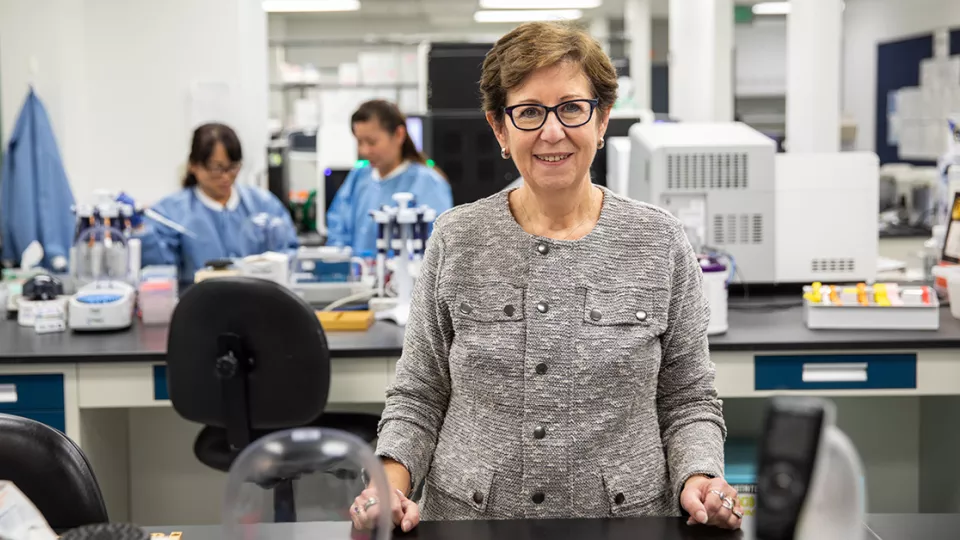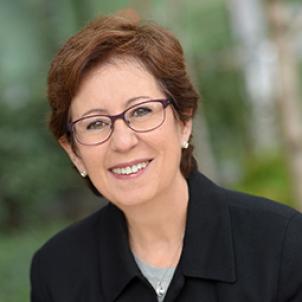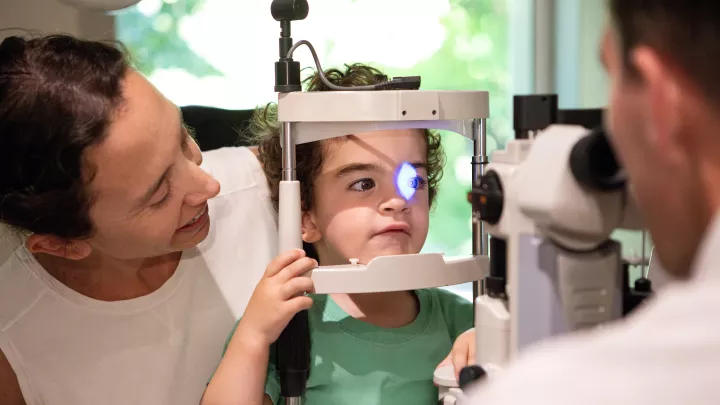
CHLA-Developed Blood Test Can Differentiate Between Multiple Types of Solid Tumors in Children
Non-invasive blood tests, known as liquid biopsies, are commonly used in adults to diagnose cancer and monitor for its recurrence. A team at Children’s Hospital Los Angeles launched a liquid biopsy meant specifically for solid tumors in children to help in finding a specific diagnosis when surgery or performing a tissue biopsy is impractical.
Pediatric solid tumors make up approximately 40% of all childhood cancers. While pediatric cancer is rare, children can develop a wide range of cancer types, located in different parts of the body, which can make the differential diagnosis challenging. The study findings were published on February 23 in the journal npj Precision Oncology.
“This is one of the first clinically validated liquid biopsy tests to be launched at a pediatric academic medical center,” says Jaclyn Biegel, PhD, Chief of Genomic Medicine and Director of the Center for Personalized Medicine at CHLA.
“We created a test that could be helpful in making a diagnosis, determining prognosis, and potentially identifying an effective therapy for children with solid tumors,” says Fariba Navid, MD, Medical Director of Clinical Research in the Cancer and Blood Disease Institute at CHLA. Dr. Navid and Dr. Biegel are co-senior authors on this study.
In their research study, the CHLA team combined a technique known as Low-Pass Whole Genome Sequencing (LP-WGS) with targeted sequencing of cell-free DNA from plasma to detect copy number changes, as well as mutations and gene fusions, that are characteristic of pediatric solid tumors. An important feature of the study was that it required a much smaller volume of sample than is required for liquid biopsy studies in adults. Since an infant or young child has a smaller blood volume, the assays needed to be adjusted to accommodate this difference.
A test targeted for pediatric needs

A test specifically for pediatric tumors is necessary because the genetics of tumors that affect adults differ from those in children. Adult tumors tend to be caused by mutations—sequence-based changes in a gene—so most liquid biopsy tests have been developed specifically to identify these mutations. Pediatric tumors arising from mutations are less common, however. In children, tumors resulting from copy number changes—losing or having extra copies of one or more genes—or rearrangements of genes that result in gene fusions, are more prevalent. The ability to discern between these patterns of copy number alterations can assist in distinguishing between various tumors that may require different treatments. “We tried to take approaches where the type of tumor doesn't really matter,” says Dr. Biegel, also Professor of Pathology at the Keck School of Medicine at USC. “The test will be able to detect multiple types of pediatric cancers, which is useful when the primary site of the tumor is unknown or we are monitoring for tumor recurrence over time.”
“A tissue biopsy is still preferable because we're going to get a lot more DNA,” says Dr. Biegel. “But this is really designed for situations where surgery is not a safe option, or we want to take repeated tumor samples.”
To create the test, the researchers collaborated with clinical teams and research investigators at CHLA including Jesse Berry, MD, Director of Ocular Oncology and CHLA’s Retinoblastoma Program, as well as investigators in Oncology, Neurosurgery and Pathology and Laboratory Medicine. Leo Mascarenhas, MD, MS, Deputy Director of the Cancer and Blood Disease Institute at CHLA was also involved in the design and support of the project.
Filling an unmet need

The first version of the test, launched Nov. 2022, evaluates chromosomal copy number changes in blood samples, cerebrospinal fluid and the aqueous humor of the eye to aid in clinical diagnosis for patients with solid tumors, brain tumors and retinoblastoma, respectively. The next version of the clinical assay, available in about six months, will include detection of mutations and gene fusions.
The liquid biopsy-based genetic tests join the CHLA-developed, OncoKids cancer panel, a next-generation sequencing-based assay designed to detect changes in DNA or RNA that are associated with pediatric leukemias, brain tumors and solid tumors; the CHLA Cancer Predisposition Panel; RNAseq for cancer, a transcriptome-based assay using RNA sequencing; as well as methylation array-based profiling for pediatric brain tumors.
Eirini Christodoulou, PhD, and Venkata Yellapantula, PhD, both at CHLA, are co-lead authors on the study. Additional authors, all at CHLA, include: Jennifer Cotter MD, Xiaowu Gai PhD, Dejerianne Ostrow, PhD, and Moiz Bootwalla, MS, of the Department of Pathology and Laboratory Medicine; Katrina O’Halloran MD, James Amatruda MD, PhD, Anya Zdanowicz of the Cancer and Blood Disease Institute; and Liya Xu, PhD, of The Vision Center.


